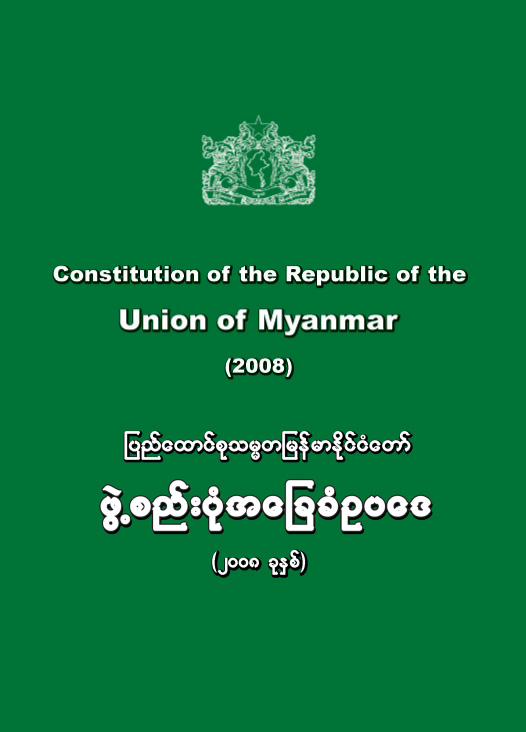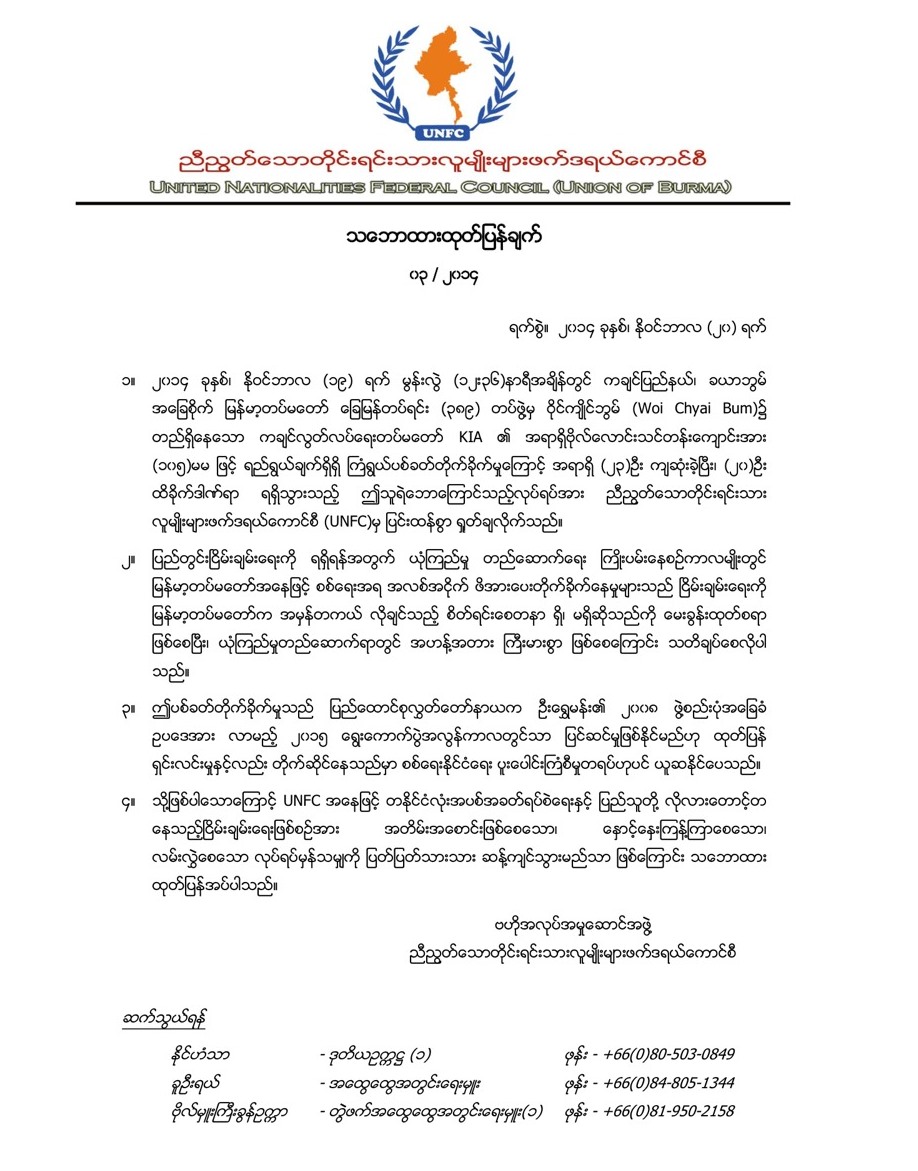Posts Tagged ‘Shwe Mann’ (6 found)
Constitutional Stalemate Sinks Hopes of Genuine Democracy and National Reconciliation
 On Tuesday 18 November, Parliamentary Speaker of the lower house of the Burma Parliament Thura Shwe Mann boldly announced – to everyone’s great frustration but no one’s great surprise – that there would be no amendments made to the controversial 2008 Constitution before the 2015 national elections. So, what are the implications of this announcement, and why is the timing significant?
On Tuesday 18 November, Parliamentary Speaker of the lower house of the Burma Parliament Thura Shwe Mann boldly announced – to everyone’s great frustration but no one’s great surprise – that there would be no amendments made to the controversial 2008 Constitution before the 2015 national elections. So, what are the implications of this announcement, and why is the timing significant?
The implications for democracy in Burma are threefold. First, unless Article 59(f) is amended, Daw Aung San Suu Kyi will not be able to lead her NLD party and run for President in the 2015 elections. Although many have long feared the worst, thus far hope has persisted, especially in light of the NLD’s highly successful campaign in favor of constitutional amendment, which attracted five million signatories in support. However, Thura Shwe Mann now seems to be calling time on Daw Aung San Suu Kyi’s political career – and the dreams of so many long-suffering and long-hopeful Burmese – smoothly but ruthlessly side-lining her until such time as she can safely be labeled a political irrelevance, and dumped for good. At the same time, his comments can be interpreted as an oblique, discreet and wily announcement of his own ambitions for a tilt at the presidency next year.
Second, without a significant overhaul of the 2008 Constitution to ensure that the rights, autonomy and self-determination of ethnic minority nationalities are respected and enshrined in law, the peace process does not stand a chance. Fighting rages on in Kachin State – not to mention in northern Shan and Karen State – with no sign of abating. The day after Thura Shwe Mann made his announcement, 23 Kachin and other ethnic nationality soldiers were killed and as many as 15 wounded when Burma Army troops fired on a military training base in Laiza, the strategic headquarters of the Kachin Independence Army. […]
• • •Religious Conversion Law Threatens Religious Freedom in Burma/Myanmar
Over 80 organizations from civil society worldwide today call on the Government of Burma/Myanmar to scrap proposed legislation that would unlawfully restrict the right to freely choose a religion. If adopted, this law would violate fundamental human rights and could lead to further violence against Muslims and other religious minorities in the country […]
• • •Burma: Scrap Proposed Discriminatory Marriage Law
(Bangkok, March 25, 2014) – Burmese President U Thein Sein and National Assembly Speaker U Thura Shwe Mann should reject proposals for discriminatory marriage legislation that would strip Buddhist women of the right to freely choose whom they marry, Human Rights Watch said today. Burma’s donors should make it clear that passage of such a discriminatory law will put at risk continued increases in levels of aid and investment.
• • •Civil Society Recommendations on the Myanmar National Human Rights Commission Law
On August 2, 38 civil society organizations, community-based organizations and networks from Burma send to Thura U Shwe Mann, Union Parliament Speaker, recommendations and proposed amendments to the Myanmar National Human Rights Commission (MNHRC) draft law in order to ensure the MNHRC’s independence […]
• • •BURMA: Speaker of Legislature Puts State Sovereignty Ahead of Torture Elimination
On 21 March 2013 a member of the national legislature in Burma introduced a motion calling for the country to join the United Nations Convention against Torture. In his motion, Dr Aung Moe Nyo, member of the National League for Democracy for Pwintbyu, Magway Region, argued that as the country is now developing and democratising in accordance with international standards it would be appropriate to join the convention […]
• • •









 All posts
All posts